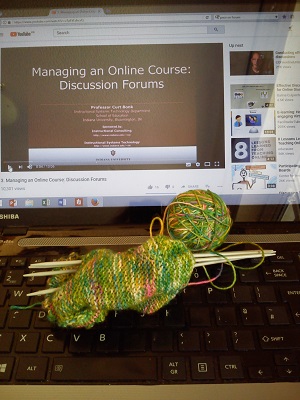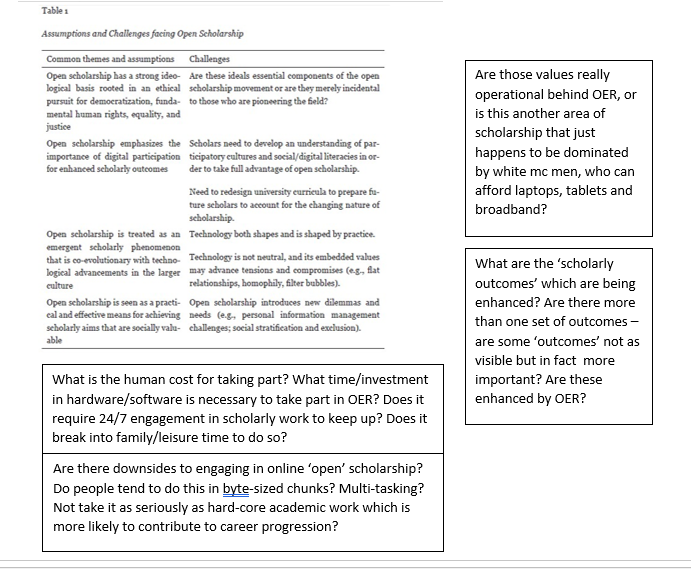OK, so I set aside good time on this sunny morning to focus on searching for material I could reflect on about the topic I will probably write up for my assignments: the use of online forums in teaching. (I did this partly by working late last night, writing forum posts to welcome my own new group of students - who suddenly popped up on my homepage when I wasn't yet expecting them )
I actually have a little set of academic papers on forum use which I have collected slowly over the last two years as I attempted to develop my work on this topic - while also teaching three modules, looking to develop my portfolio of teaching, bringing up my daughter, feeding my cats and occasionally getting to go out with my friends. (I think I still have some friends! They are mostly parents or OU Associate Lecturers too, so they understand why I don't get out that often, blinking in the social sunlight.)
However, using my already existing list would be cheating so I set slowly to exploring the sites listed: the Association of Learning Technologists (that sounds good - maybe I could go to one of their conferences at a later date?), Youtube, Slideshare, Prezi and Animoto.
I am hampered in my search by the fact that the word 'forum' is frequently used in phrases like 'we will discuss this in our forum'. I try phrases like 'teaching in online forums'. I find very little, although one Youtube slideshow does say that the topic is under-researched (good news for me if so! that would mean this is a good area to continue developing work).
I don't manage to do a search on Animoto, as it looks like you have to sign up to the site to do this. I am deeply suspicious of signing up to things online, and have an email Junk Box full of messages from beautiful Russian and Japanese women begging me to marry them (and undertake other less salubrious activities) to explain why. (I am half-Japanese myself, and I don't need another beautiful Japanese woman around; I know how expensive we are.)
Another issue for me is that I hate videos. I find it impossible to concentrate in audio clips, videos and other aural/visual learning media. I am an exceptionally text-oriented person, who used to try and carry on reading at night as a child, by lying next to the door holding a book to the sliver of light from the crack under the door. When I have to view/hear video and audio material on the modules I teach, so I can teach about them, I have to do something else at the same time in order to concentrate: the ironing, or knitting. I readily provide, use and recommend sympathetic materials for my students, who are often not textual learners, but I personally switch off within 10 seconds of a video or audio clip. This makes it hard to even figure out whether the clip has got anything relevant in it. I have managed to learn a little Welsh from two and three minute videos only by listening to them while I make my daughter's packed lunch in the morning. ("Bore da! Mae'n braf heddiw yng Cymru." )
I do manage to find three things before starting to bite my memory sticks with boredom. One is a Youtube video by a Prof. Bonk. His name stuck in my mind from other reading on the module (for some reason ), so I figure his will be a good video to view - although his delivery style makes me feel like going to do washing up and ironing immediately. I will get my knitting, I have just got to quite a difficult bit so I will have to make sure I concentrate on Prof. Bonk and not finishing off the picot hem to the thumb of my mitten.

